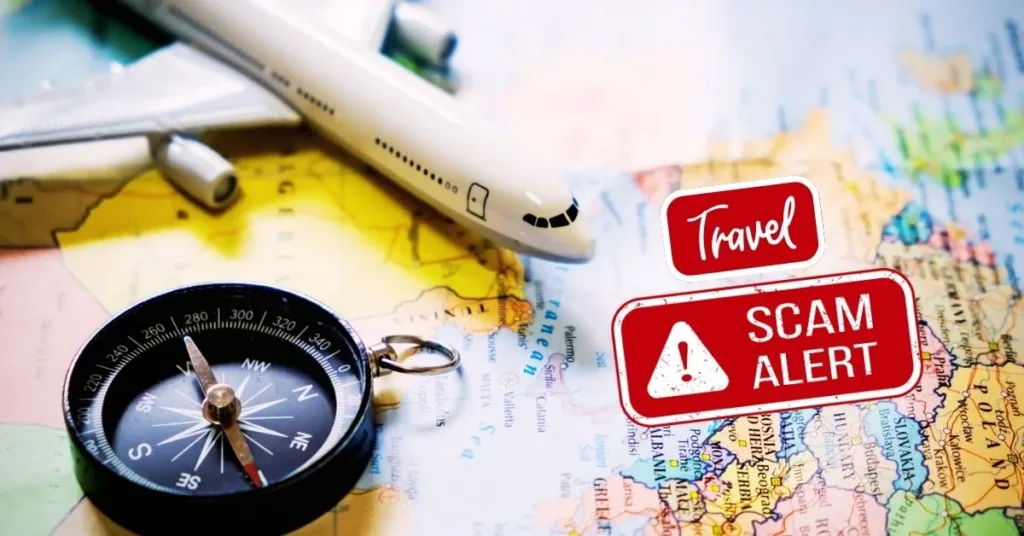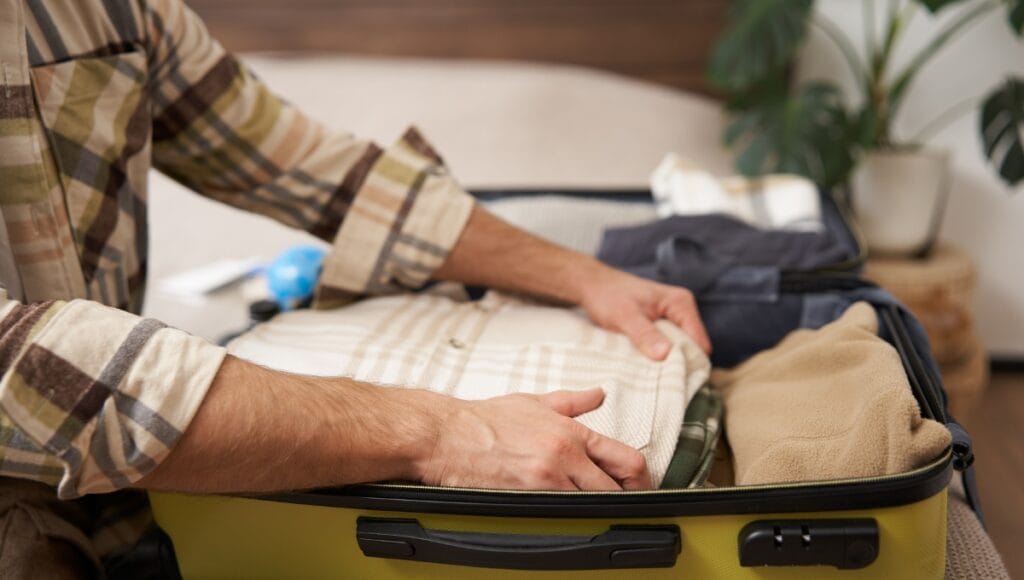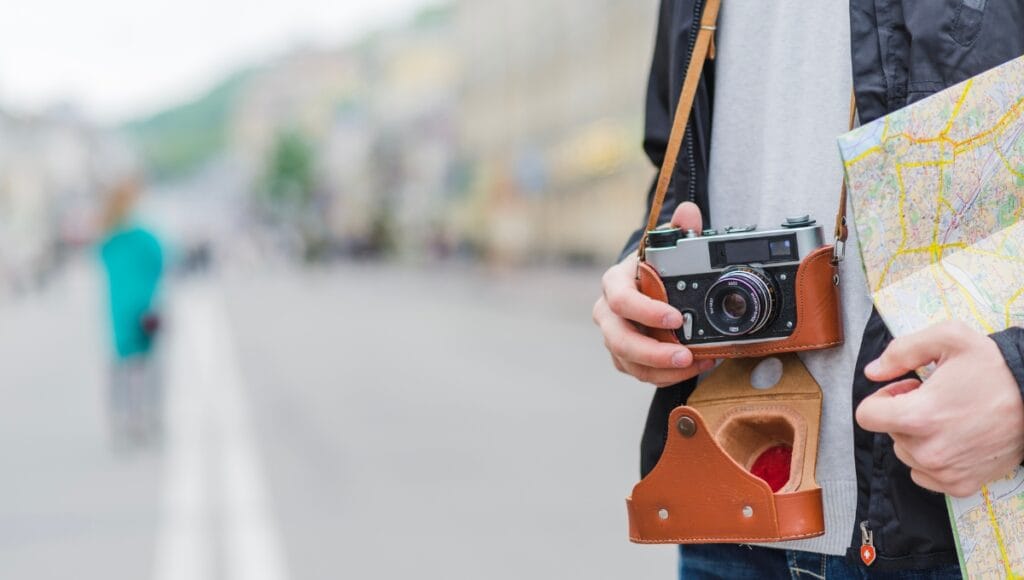Worried about travel scams? Here are 9 essential tips for avoiding travel scams and ensuring a secure trip! Don’t let scammers ruin your vacation! Traveling is an exciting experience, but it also comes with risks, especially when it comes to fraud and deception. Scammers often target tourists, taking advantage of their unfamiliarity with new places. To ensure a safe and enjoyable journey, it’s essential to be aware of common scams and how to avoid them.
Tips For Staying Secure
1. Research Common Scams in Your Destination
Before you set foot in a new location, take time to research common scams prevalent in that area. Some cities are notorious for pickpockets, while others have taxi overcharging schemes. Understanding the local tactics will help you stay one step ahead and recognize red flags. This is one of the best tips for avoiding travel scams. Travel forums, official tourism websites, and online reviews are great sources to learn about potential scams.
2. Use Official and Secure Booking Channels
Scammers often create fake websites or pose as legitimate booking agents to trick travelers. To avoid falling victim, always use trusted platforms like airline websites, reputable travel agencies, and hotel chains. Check reviews and verify the legitimacy of any booking site before entering your payment details. Following these tips for avoiding travel scams ensures a smooth experience. Additionally, always look for secure website indicators, such as “https” in the URL and official contact details that match the service provider.
3. Be Cautious with Unsolicited Offers
If someone approaches you with an incredible deal, such as discounted tours or “too good to be true” hotel rates, be skeptical. Many of these offers are bait-and-switch tactics, where scammers take your money and disappear. Stick to verified sources when booking excursions or services. These are effective tips for avoiding travel scams. Always compare prices across different platforms and ask for recommendations from locals or fellow travelers. If an offer requires upfront payment without any documentation, it’s best to walk away.
4. Protect Your Personal and Financial Information
Identity theft is a significant concern for travelers. Avoid using public Wi-Fi networks to access sensitive accounts, such as online banking. Instead, use a virtual private network (VPN) to encrypt your data. Also, be cautious when handing over your passport or credit card to vendors—some may attempt to skim your information. Implementing these tips for avoiding travel scams will keep you safe. When possible, use RFID-blocking wallets to prevent digital pickpocketing and be wary of ATMs that appear tampered with or placed in isolated areas.
5. Beware of Fake Police Officers
A common scam involves imposters posing as police officers asking for your identification or wallet. If someone claiming to be an officer approaches you, ask for their badge and credentials. If they insist on taking you somewhere or demand money, refuse and seek assistance from nearby authorities or your embassy. Awareness is one of the top tips for avoiding travel scams. Real police officers will not ask for on-the-spot fines or demand your belongings without proper documentation. If in doubt, request to go to the nearest police station.
6. Verify Taxi and Ride-Share Services
One of the most common scams in many countries involves taxis charging exorbitant fares or taking unnecessarily long routes. To avoid this, use official taxi services or reputable ride-sharing apps. Always confirm the fare before getting into a taxi and ensure the driver uses a meter. This is among the key tips for avoiding travel scams. If possible, book taxis through your hotel or an authorized taxi stand. Also, be cautious of fake ride-share drivers who pose as legitimate drivers but have no affiliation with the company.
7. Keep Your Belongings Secure
Pickpocketing is a prevalent travel scam in crowded tourist spots. Use anti-theft backpacks, keep your belongings close to your body, and avoid displaying expensive items such as jewelry or high-end gadgets. Be extra vigilant in busy areas, public transportation, and marketplaces. Following these tips for avoiding travel scams can save you from loss. When in a restaurant or café, never hang your bag on the back of a chair. Instead, keep it on your lap or between your feet with a strap wrapped around your leg.
8. Be Wary of Fake “Helpful” Strangers
While many locals genuinely want to assist, some scammers prey on tourists by offering unsolicited help with ATMs, directions, or luggage. These individuals may be attempting to steal your belongings or gain access to your financial information. Politely decline assistance and rely on official sources such as information desks or hotel staff. Smart travelers always follow tips for avoiding travel scams. If someone insists on helping, firmly decline and walk away. Scammers often operate in teams, so be aware of distractions that could lead to theft.
9. Double-Check Currency Exchanges
Currency exchange scams can leave you with counterfeit money or incorrect amounts. Always exchange currency at authorized banks or reputable exchange offices. If using ATMs, choose those inside banks rather than street-side machines to reduce the risk of card skimming. Taking care with your transactions is one of the crucial tips for avoiding travel scams. Count your money before leaving the exchange counter and be cautious of hidden fees or unfavorable exchange rates offered by unauthorized vendors. https://economictimes.indiatimes.com/news/how-to/nine-essential-tips-to-avoid-scams-a-must-read-guide-for-all-travelers-going-abroad/articleshow/99925348.cms?from=mdr
Common Travel Scams and How to Avoid Them
| Scam Type | How It Works | How to Avoid It |
| Taxi Overcharging | Drivers refuse to use meters or take longer routes | Use official taxis, agree on a fare beforehand |
| Fake Police | Imposters demand to check your wallet or ID | Ask for credentials, refuse to hand over valuables |
| ATM Assistance | Scammers offer to “help” and steal your PIN or card | Decline help, use secure ATMs |
| Counterfeit Money | Fake bills given during currency exchange | Use authorized exchange offices, count money carefully |
| Rental Damage Scams | Rental companies falsely claim damage upon return | Take photos of rentals before use, read agreements carefully |
By staying informed and vigilant, you can significantly reduce your chances of falling victim to scams while traveling. Awareness is the first line of defense against fraudsters looking to exploit unsuspecting tourists. Follow these 9 crucial tips for avoiding travel scams and staying secure, and you’ll enjoy a stress-free, memorable journey without unnecessary financial losses or safety concerns. Always keep these tips for avoiding travel scams in mind for a hassle-free experience.
What’s the most unexpected travel scam you’ve ever encountered, and how did you avoid it? Share Your thoughts Comment Below!
Stay Updated with More Exciting Articles on Our Blog! https://epictraveldiaries.com/proven-tips-for-traveling-with-kids-in-2025/
FAQs
1. How can I spot a tourist scam?
Many scams involve high-pressure tactics, too-good-to-be-true deals, or requests for personal information. Trust your instincts—if something feels off, walk away.
2. Should I carry cash or use a credit card while traveling?
A mix of both is ideal. Use credit cards for security and fraud protection, but keep some cash for emergencies or small transactions where cards aren’t accepted.
3. What should I do if I fall victim to a scam?
Report the incident to local authorities, contact your embassy, and notify your bank if financial details were compromised. Document everything to support any claims.
4. Are travel insurance plans helpful in case of scams?
Yes, travel insurance can provide coverage for financial losses due to fraud, theft, or unauthorized transactions. Always read the policy details to understand what’s included.
5. How can I safely use public Wi-Fi abroad?
Avoid accessing sensitive accounts like banking or email on public networks. Use a VPN for encryption and enhanced security when browsing online.




